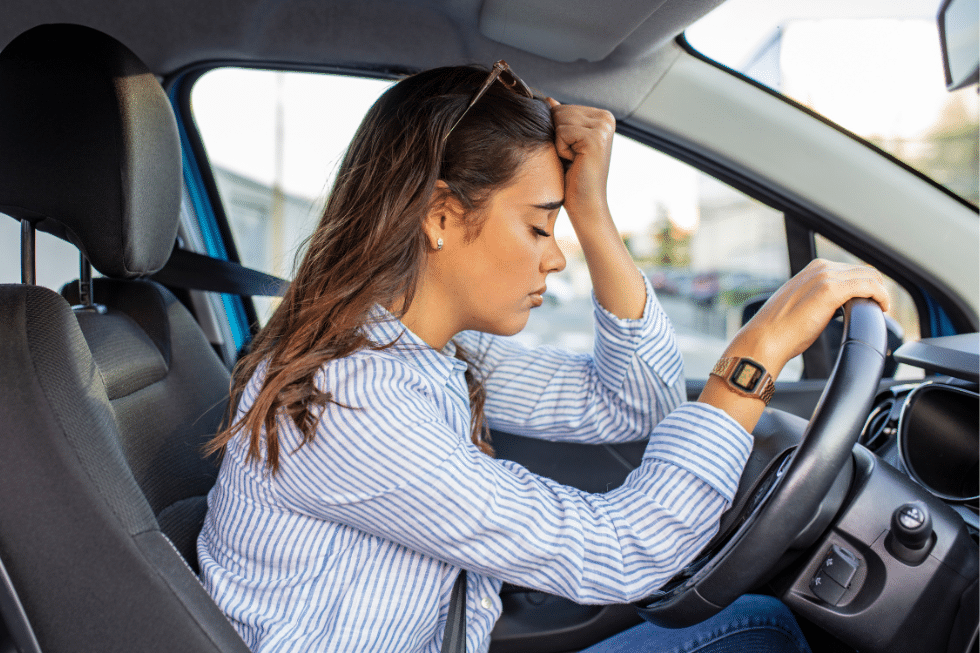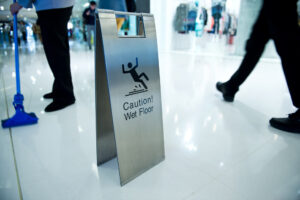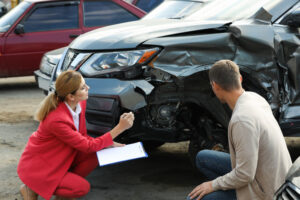Stress is that physical and emotional feeling that makes you slam on your brakes to avoid hitting a car that suddenly stopped in front of you. It’s how people react to challenging or demanding situations and events. Your body releases hormones that cause your brain and muscles to react, which is a good thing when it keeps you from crashing into the rear of another car, but stress driving can just as easily cause someone to respond with anger and frustration.
Slamming on your brakes, breathing a sigh of relief, continuing on your way is a good way to respond to the actions of another motorist. Unfortunately, people’s reaction to stress when they drive is not always peaceful. According to the Florida Department of Transportation, 56% of fatal motor vehicle accidents are caused by aggressive driving, and 50% of motorists admit to responding aggressively to road-rage encounters.
April being “National Stress Awareness Month” offers a fitting opportunity to explore stress and particularly how it affects driver behaviors. Along the way, you’ll learn about ways to cope with stress and how to reduce and control it while driving.
What is stress?
Stress is a combination of physical tension and an emotional feeling triggered by challenging or demanding events or situations. Your body responds to a stress trigger by sending hormones through your bloodstream. Muscles tense, your heart rate increases and your brain goes on high alert as you respond to the event or situation. Once the trigger is gone, things return to normal.
People experiencing multiple stress triggers in their lives may experience chronic stress, which can adversely affect their health. Some of the health risks of long-term or chronic stress include:
- Heart disease
- Depression
- Anxiety
- High blood pressure
- Obesity
If you already have a health condition, chronic stress can make it worse.
Tips for managing stress
When stress lingers and seems to become an everyday emotional and physical presence in your life, try the following tips to manage it:
- Focus on healthy eating, exercise, getting enough sleep and other ways to take care of your overall physical wellbeing.
- Take a break to get away from a stressful situation.
- Do not respond to stress by turning to alcohol or drugs.
If managing stress on your own has not been effective, do not hesitate to seek professional help.
Managing stress while driving
Stress and driving may seem to go hand-in-hand, but it does not have to be that way. The behavior of other drivers can be outrageously inconsiderate, rude, and aggressive. Instead of responding in kind, which only makes the situation even more stressful, use the following methods to control how you react to it:
- Refuse to engage with aggressive behavior from other drivers. Instead, slow down to get away from them.
- Do not get into a staring contest with another driver. Watch the road, which is what you should be doing anyway.
- Do not get into a confrontation with another driver who refuses to allow you to break contact. Instead, call the police or drive to the nearest police station.
Some stressful driving situations have nothing to do with the behavior of other motorists. Here are some common stress producers and ways to avoid them when driving:
- Plan your trip and allow enough time to get to your destination.
- Know the address of your destination, and program it into your navigation device before starting out.
- Stay alert and do not get distracted while driving. Focusing on the road instead of your phone or conversations with other occupants of your can lets you be aware of situations requiring action before they are upon you. For example, seeing brake lights in the distance warns you to begin to slow down rather than having to slam on your brakes at the last moment.
- Turn off your phone or put it in the glovebox to avoid a source of distraction.
- Take frequent breaks on long trips to remain alert while driving particularly if you feel tired or fatigued.
Maintain your car to avoid breakdowns on the road that can be expensive and stressful. Ignoring worn tires or a warning light on the instrument panel can result in being stranded on the side of the road.
Avoiding stress after a car accident
Car accidents are stressful events, but a Tampa personal injury attorney can help relieve stress by helping you recover the compensation that you’re entitled to receive after an accident. Learn more about your right to compensation during a free consultation.



